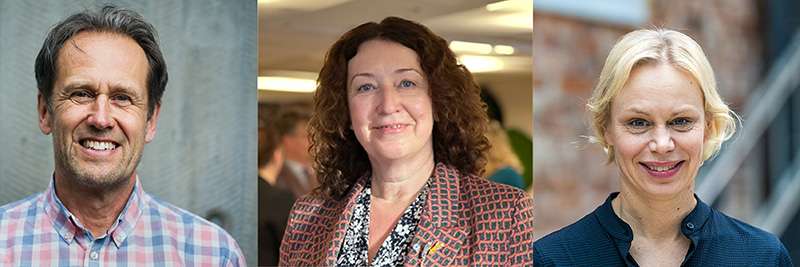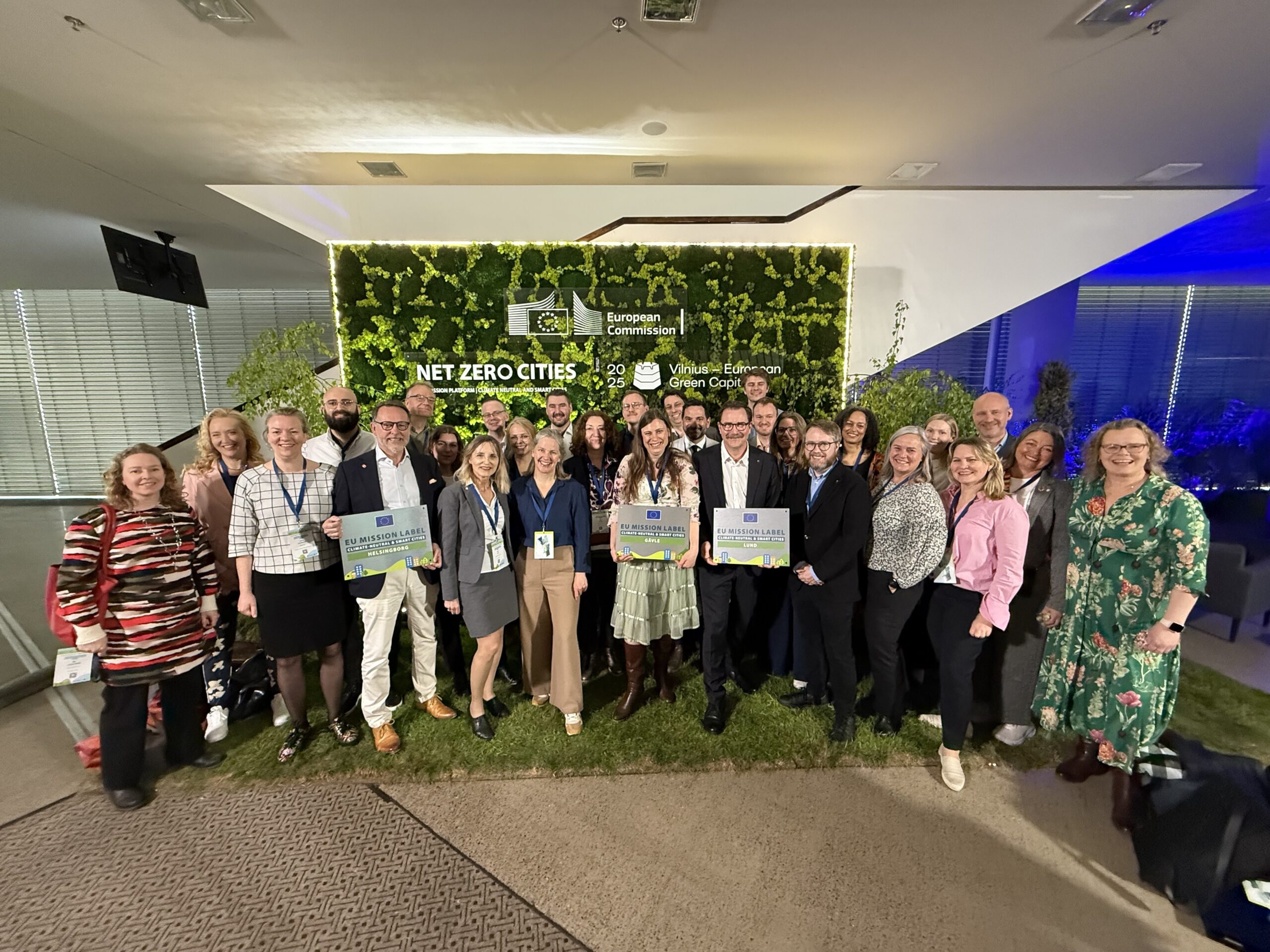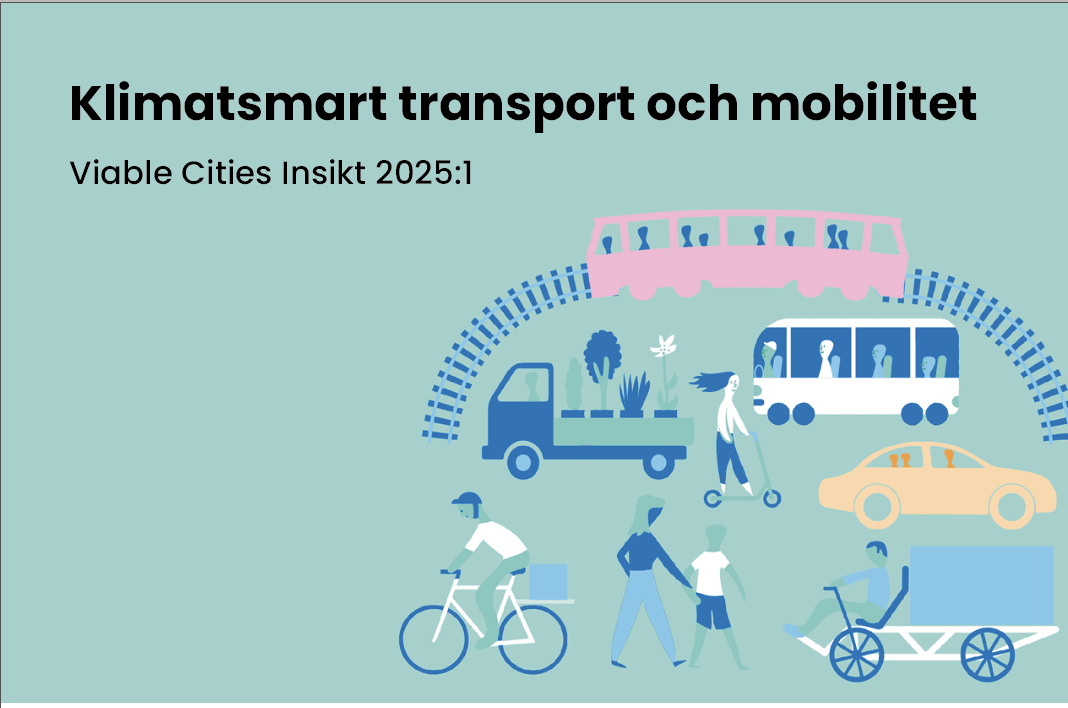
To achieve climate-neutral cities and communities, we need to transform the construction sector. By choosing electrified machinery and heavy vehicles, we can reduce emissions, improve air quality and create safer, quieter urban environments.
Viable Cities' mission is Climate Neutral Cities 2030 with a good life for all within the planetary boundaries. The Climate Neutral Cities 2030 initiativeis therefore the biggest thing we are working on. Within the initiative, 48 Swedish cities are working together with several national government agencies and Viable Cities to lead the way in the climate transition. Cities have taken it upon themselves to test new approaches and solutions, to learn from each other and to work towards the mission: to create cities that work well for the people who live in them, that are good for the economy of citizens, businesses and society - and - that are good for the climate. This is not an easy task, nor is there a blueprint for how to do it. Major changes are needed across society if we are to meet our climate targets and save the planet. Doing things the way we have always done them is no longer an option, we need to work in completely new ways.
We focus on cities and municipalities because they are in a great position to involve local actors and make decisions within their geographical area. In addition to the municipality, many other actors are important for the local transition journey, such as SSAB in Borlänge or the petroleum industry in Gothenburg. A local mobilization of business, civil society, citizens and universities is needed to achieve the climate and sustainability goals. This is why we talk about cities and not municipalities. Municipalities can lead the work, but all other actors also need to be involved in the mobilization. By bringing cities together to work together and learn from each other, we accelerate the local transition journey.
The Climate Neutral Cities 2030 initiative is testing new ways of working and new solutions, learning and sharing what we do to speed up the transition journey. The Climate City Contract 2030 tool is the hub of this joint effort. Each city collects its climate and sustainability commitments in the contract, which is revised and signed every year. The six authorities and Viable Cities describe in the contract how we will support the cities' local transition journeys.
The 48 cities in the Climate Neutral Cities 2030 initiative - 33 pioneer cities and 15 twin cities linking arms with a pioneer city - have countless efforts underway to contribute to all of this. They are working to reduce greenhouse gas emissions, to save energy, to create mobility for all, to engage more people, to govern and lead in new ways. And they are all sharing their experiences to work together to create the new normal: climate-neutral cities by 2030 - with a good life for all, within the limits of the planet.

Skellefteå
Örnsköldsvik
Sundsvall
Östersund
Sandviken
Borlänge
Avesta
Arvika
Enköping
Trollhättan
Karlstad
Kristinehamn
Eskilstuna
Örebro
Uppsala
Järfälla
Värmdö
Stockholm
Mariestad
Härryda
Linköping
Mjölby
Ulricehamn
Gothenburg
Falköping
Alvesta
Gotland
Falkenberg
Mörbylånga
Karlskrona
Helsingborg
Höganäs
Kristianstad
Tomelilla
Landskrona
48 Swedish cities are working together in Viable Cities' Climate Neutral Cities 2030 initiative. The map here gives a quick overview of all the cities and at each map pin you will find a link to the city's page, where you can read more about their work, current events and spy and apply their good examples.
To accelerate the climate transition, we - 2030 cities, government agencies and Viable Cities - are continuously developing tools, methods and approaches, anchored in the research approach that forms the basis of our joint work.
Climate City Contract 2030 is an agreement and an effort by Swedish cities, national government agencies and Viable Cities, where all parties commit to contribute to the comprehensive climate transition.
Climate investment plans provide a social and economic perspective on measures and investments in cities. The initiative is being implemented as part of the municipalities' work on roadmaps within Climate City Contract 2030.
Within the Transition Lab there are events, tools and methods, which together aim to co-create a capacity to face the climate crisis and other major societal challenges and accelerate change.
Achieving the mission requires new ways of leading and governing. It is not enough to transform municipal operations - the transformation must take place for everyone who works in the city.
System demonstrators are site-based demonstrations of systems. The focus on system-level innovations gives them an inherent potential to scale up and out locally and nationally.
Working in a mission-driven way towards a concrete goal may sound simple, but it requires profound changes in society, by all its actors. The Transition Mapis a tool that clarifies the path towards climate-neutral cities.
For the climate transition to be as powerful as possible, those of us working together need to be good at communicating what we do and who we are.
Local Transition Teams work to realize the transition in the city, including by creating a Transition Arena with local actors. The Transition Arena develops transition plans that are summarized in Climate City Contract 2030.
To enable radical change in a short time, all efforts need to be linked together. We need to work "beyond projectization" instead of, as often today, working in fragmented transition projects.

To achieve climate-neutral cities and communities, we need to transform the construction sector. By choosing electrified machinery and heavy vehicles, we can reduce emissions, improve air quality and create safer, quieter urban environments.

The Vilnius conference confirmed that the pace is accelerating - more and more cities are mobilizing the power of local climate leadership to reach climate neutrality by 2030.

In Viable Cities Insight 2025:2, we have taken a closer look at how 2030 cities are organizing themselves at the local level to accelerate the transition, both within the municipal organization and together with other actors in the transition arena. The analysis is based on the texts of Climate City Contract 2030 and...

Today we are publishing Viable Cities Insight 2025:1. Through them, we provide short analyses of actions taken under the program, such as the Climate City Contract 2030 that is updated by 2030 cities every year. In the first insight, we take a closer look at how cities describe...